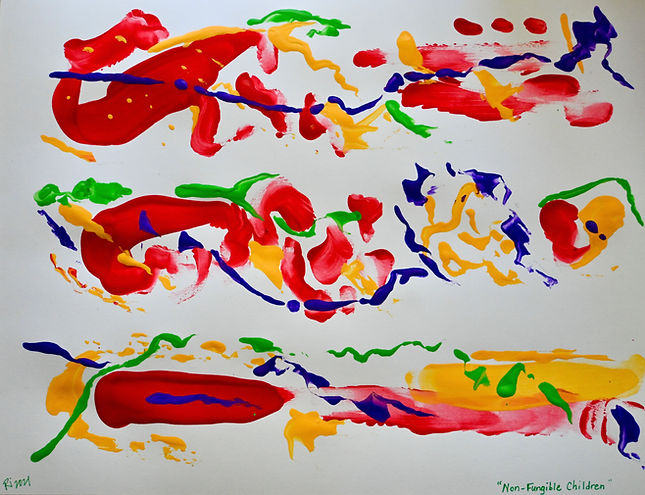a collection of graphic scores
i hate graphic scores (2025)




s(o)(e)wing (2024)
instructional score




to seek an unpromising hope (2023)

when i (2023)




fruit scores (2022)
instructional score




w-i-d-e (2022)

shatter (2022)




frusssssssss (2022)

delete for tuba (2022)

timed brackets (2021)
bassoon, hedra, slö, & respira for ezra gans




sparingly for any instrument sparingly (2022)

Non-Fungible Children (2021)

fire (fire) cat (2021)
%20cat_Marisa%20Tornello.jpeg)
half beaten but not half torn (2021)
from my answer lies in broken memories

when (2021)
from my answer lies in broken memories
.jpeg)
sweet annie (2021)




I'm a paragraph. Click here to add your own text and edit me. It's easy.
chemicals make you cry, make you fry you are sweet
make you f-r-y you heal the world
they may also bring tears, with your life
years to your eyes you are s-w-e-e-e-e-e-e-t
burning, burning, they guide you you heal the world
maybe even convince you you are light
of their beauty don't be fooled
anyone could believe by those colors
they're meant for beauty those colors
to the n-a-k-e-d eye those
c-h-e-m-i-c-a-l
sweet annies makes you sweet, make you sing colors
like how you u-s-e-d to you are sweet
hear the sweet song? the one that made you they are poison
fall in love you are light
fall in love
with that beautiful voice of yours
oh, oh, what a sweet annie you are
oh, what a s-w-e-e-e-e-e-t annie you are
raspy (2020)

Vocalist: Shara Lunon
the raspberry smears itself upon the cardstock, wettening the thick paper as if to make its place known
the residue discolors and weakens the paper, withering its constitution every minute
good
i am tart, i am curt, i am full of seeds
i am life and
and
my curves are nature
and
you have nothing to do with
my existence
i am smooth and harsh
i am nourishment
i am red
and
nothing will change me
not even you
~
time does not exist. performer has liberty to pursue score as quickly or slowly as desired.
chains of smashed raspberry (without lines) live in operatic descension
jam smears (with lines) ask for tonal direction, but fail to inquire further (a shyness makes them distant)
stains have audible breathiness, hollow, withered exhales
seeds (|) are simple, forte , staccato, symmetrical, percussive, voice placed in mask
partial larger chunks demand space and attention, broken trills in various pitches with fermata
burst (2020)

burst is a retrospective into the opposing emotions of Americans during the pandemic. The piece evolves from acoustic voices and instruments into white noise, an expression of loudness in a confusing time. Singular anguish transforms into overwhelming confusion.
for voice, electronics, autoharp, guitar, dulcimer
Instantly and Not At All (2020)

Instantly and Not at All explores the nature of a recurring motive swallowed by chaos with
visions of grief in its grasp. I’ve chosen to exercise elements of the same, but not
the same and collage with exploration of layered vocal textures, and the colors that emerge from this experimentation. The piece is bookended with heavy exhales where whispered tone clusters splinter into the silence. Sporadic click tones emerge from the breath. The vibraphone enters, soon to be
followed by the marimba, which presents the sole traditional notational motive indicated on the score. This theme is repeated throughout the piece in various variations. Initially, it can be heard in the marimba, but continues to change in timbre, instrumentation, length, and intervals.
The motive continues to emerge in its evolved forms in vocal trills and in the vibraphone, xylophone, bells, and lute. A high pitched vocal cackling also emerges with the click tones at the start to set a drone for the length of the piece. These layers are meant to be forgotten as more layers add to the texture of the piece, until the end where the listener’s awareness of these foundations are brought back when returning to the the scape of breathiness.
Isolated three part harmonies singing “strife” enter four times throughout the piece to provide a sense of forward motion and the heaviness not only of breath, but of mind. More three part harmonies emerge singing “it seems like yesterday I saw you, instantly I knew you”. This line is another nod to the literal settings of the same, but not the same. The three voices are not in sync. There is a slight delay, which adds an irony to the contradicting line. The line “it seems like” applies an approximation of time and expression, and the second line “instantly I knew you”, switching intent and tense. Instead of recording three separate recordings, I recorded one line, and changed the pitch of the other two - another symbolic nod to the concept of same, but not the same. An ascending sliding tone in another vocal layer builds the climax, along with a rhythmic marimba section, bells, vibraphone, xylophone, and lute. Once it reaches its climax, the rhythmic elements of the piece ceases, returning it to a state of aimless exploration.
Pittsburgh Memory (2020)
Romare Bearden's Pittsburgh Memory (1964) used as a visual score

Please Enjoy Your Complimentary Calendar (2020)

impatiently__ (2020)



Vocals and Production by Shara Lunon